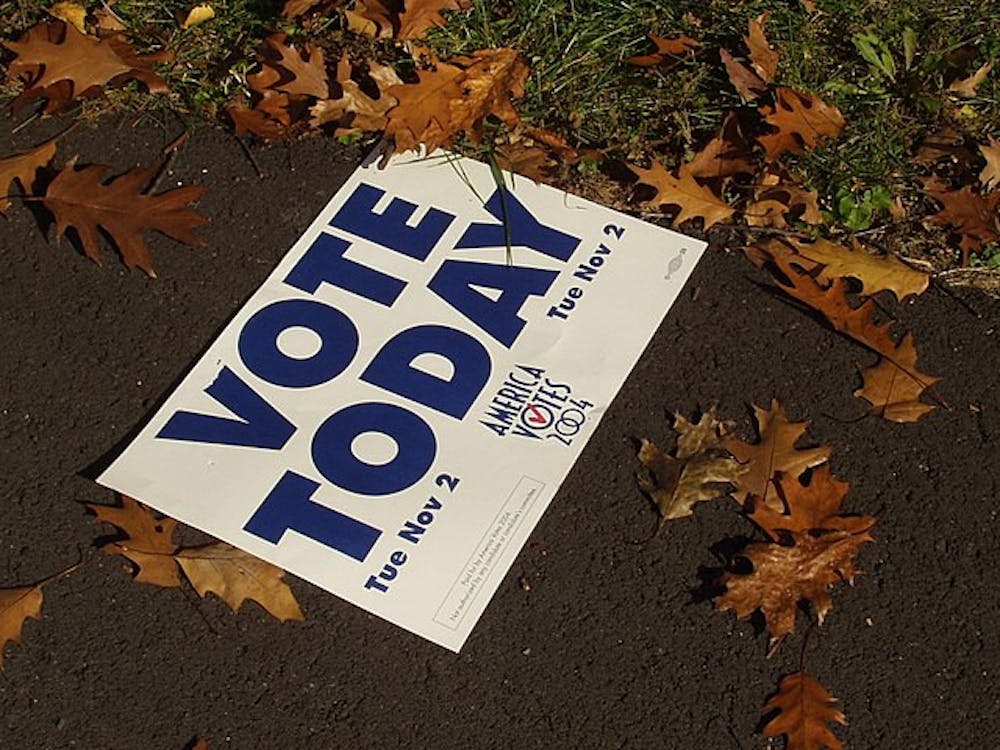Picture this: a middle-aged, conservative coal miner from central Kentucky. You would be right to predict with near certainty that he would vote reliably Republican. And yet, in the same state represented by such “popular” politicians as Mitch McConnell, the incumbent Democratic governor Andy Beshear was just reelected by a comfortable margin. He managed to do well across the state, including many rural counties that are usually ruby red. Mind you, this was the same state that voted for Donald Trump by an astounding 26% margin. So considering Beshear’s impressive victory, Democrats should be teed-up for a blue wave in 2024. Right?
Not exactly. The results from the Nov. 7 elections are more complicated than that, but they point to a winning strategy for Democrats in the future. Firstly, there were other causes of celebration for Democrats: They retook full control of the Virginia State Legislature, dampened Republican governor Glenn Younkin's influence and won a seat on the Pennsylvania Supreme Court. Yet Republicans didn’t exactly fall apart. In Virginia, for one, they overperformed relative to 2020, as they won every single district that voted for Trump and several that voted for Joe Biden. They also won the Mississippi governor election by 4.4%. Granted, this is a weak margin in such a solidly red state. Still, the incumbent Republican governor is notably unpopular and his challenger, Brandon Presley, is a moderate Democrat related to Elvis Presley. It was realistically Democrat’s best shot to win in Mississippi for decades.
Plus, the fact is that local elections are inherently different from national ones. They’re less partisan, as people seem more willing to cross the aisle for moderate politicians from the opposite side. This also explains why Republican Phil Scott can win in ultra-liberal Vermont. Impressive as Beshear’s victory was, if he were to run for Congress, it is likely that he would be weighed down by partisan polarization and the unpopularity of national Democrats’ stances on issues like abortion. State elections must be taken with a few heaps of salt.
But there is some hope for Democrats and areas of worry for Republicans. In Ohio, two constitutional amendments easily passed: one that protects abortion and another that legalizes marijuana. Not exactly in line with Ohio’s recent shift rightward, no? It seems that Democratic policies are more popular than the party itself, as the success of these referenda is out of step with the party’s recent failures in the former bellwether. The good news is that abortion and weed are winning issues for Democrats, and they should run on them to win future elections.
Whether justifiably or not, Republicans are perceived as handling the economy better than Democrats. But in social issues, popular sentiment veers surprisingly liberal: A vast majority of people support same-sex marriage, abortion rights, marijuana legalization and other Democrat-backed stances on hot-button issues. Democrats even have the edge in several economic issues, as most people, red and blue alike, support Social Security expansion by increasing taxes on the wealthy. Simply put, the Democrats’ policies are a lot more popular than the Republicans’.
This has been seen time and time again in the last few years: Kansas voted to keep abortion legal, recreational marijuana was approved by voters in Missouri and Medicaid expansion passed in South Dakota. Notably, all these measures passed by popular vote in red states whose legislatures would probably recoil at the thought.
If Democrats run on the current state of the economy, they’d likely lose. It’s always easy for the opposition party to decry inflation, gas prices and interest rates, and then claim they can do better. After all, the grass is always greener on the other side.
But if Democrats focus on their actual policies, especially social ones, they would make a pretty impressive case. The Democrats’ biggest issue seems to be messaging, as candidates (especially on the state level) cannot seem to achieve the same electoral success as popular policies put up directly for a vote. Get-out-the-vote efforts and information drives would do wonders to emphasize the popular legislation that Democrats would implement, as well as paint a stark contrast to the comparatively unpopular policies of the opposition.
As for Republicans, they would be wise to hammer down on above-average inflation and Biden’s age, as both are a concern for voters. However, even if they win in 2024, one has to wonder what the long-term plan is. After all, the last time they had full control of the U.S. Congress and presidency, they passed unpopular tax cuts and promptly lost control of the House. Trump also appointed conservative justices to the U.S. Supreme Court who finally overturned the popular Roe v. Wade in 2022. It is clear that voters support many policies that the national Republican Party still stubbornly opposes, like greater access to abortion and marijuana. Voters seem to like the idea of Republicans more than the actual legislation of the party.
Ultimately, the most consequential elections in 2023 were likely Ohio’s two constitutional referendums. They proved that voters support liberal policy, and if Democrats could pick up more votes by emphasizing their platform, they could win handily. Maybe even a few rural Kentuckians who supported Beshear, against all odds, could be swayed.
Nick Daum is a freshman from Bethesda, Md. majoring in Economics and Applied Math and Statistics.





